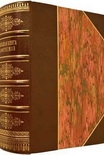The Khan Saima Mir (best short novels TXT) 📖

- Author: Saima Mir
Book online «The Khan Saima Mir (best short novels TXT) 📖». Author Saima Mir
Jaanan Khan spoke first; he was the eldest of the men. His tone was cold, his manner frosty, yet he began with kind words to her: ‘I would like to offer my condolences to you. Your father was a true Pathan and a king among our people. We will miss him and pray you find peace.’ A wry smile spread across his face, and he bared his teeth. ‘You are many things, Jia Khan, but you are not our Khan; you are a woman,’ he said.
‘I am here to listen to my father’s people,’ she responded. Silence fell across the room, followed by a sound from deep within Jaanan Khan’s belly. He was laughing at her. He turned to his comrades, smirking, and they joined him. Their half-suppressed scorn awoke an old hatred in Jia, one that she had not felt in some time. Anchoring herself with a reminder of who Jaanan Khan was, she refused to take the bait. His ways were the old ways, his sensibilities the old sensibilities. His green eyes had greyed watching time and people change, but his archaic interpretation of honour and loyalty had not, and he believed that women should know their place. Jia knew hers, and it was not at the feet of these men.
She raised her hand to silence them the way she had seen her father do many times. She was on course to become a judge under British law, so she knew how to control a room. Maybe that is why they stopped laughing. On the other hand, this was not that world, and this was a world in which her worth remained unproven.
She waited, allowing the silence in the room to grow until it became unbearable and Jaanan Khan exploded. ‘She will lead us into destruction! Look at her, so frightened that she dare not even speak.’ His anger infected his comrades and their voices rose like a rabble.
Bazigh Khan tried to silence them again but Jaanan would have none of it. The two men’s voices became louder and louder, with others at the table trying to out-shout each other. Harsh words were exchanged in English and Pashto, accusations flung and age-old wounds torn open. Jia listened, their words watering the anger within her, and she blamed her father. Was this his badal for her? To let her walk in his shoes? The rage that had taken root when she’d heard what had happened to Benyamin wrapped around her sinews like ivy. She straightened up, her head being pulled by an invisible string that hung from the rafters.
She looked at the old men who had built the family empire alongside her father, the men who owned the city and intimidated its inhabitants. She watched them spit and seethe and goad each other, unable to control their tongues and their tempers, and a calm came over her. She was better than this, she was smarter than them, and she had nothing to prove.
Her voice even, her tone gentle, she looked at Jaanan Khan. ‘You benefit from the business of women. If women stopped buying from and selling to men, then where would you be?’ she said. The room fell to a hush. ‘We have not buried my father yet, and I have still to weep my share of tears, Lala.’ She moved forward and placed her hand on the old man’s arm, knowing that calling him uncle had softened him a little. ‘I was your Khan’s favourite child and this is how you repay him. Does his death and a woman’s pain and honour mean so little to you?’
He had expected her to light the fuse, not pour sand on his vitriol. A look of shame flashed across his face and in that moment Jia knew she had him.
She glanced around the room at the other men. She had watched them grow old, from fathers to grandfathers, and she understood that they were withering away and clinging to their views in the hope of remaining relevant.
‘Do not be offended, Daughter,’ said Bazigh Khan. ‘We want in no way to dishonour your father’s memory or to take from you this time of grief. It is justice we seek. These are our ways, and so it has been for centuries.’
‘These ways of which you speak have killed my father and endangered my brother’s life,’ said Jia.
One of the men, a little younger than the others, nodded at her words, leaning forward as he spoke, his Pashto not as clear as the others: ‘If we do not impress upon the perpetrators the error of their ways, how will they learn? Jia jaan, it is as a mercy to them that we must act.’
Afzal Khan was the first member of the Jirga to have been born in England. Seated at the far end of the room, he had inherited the family business only a year ago, after his father passed away. His factory was crucial to the Khan’s economy and was one of the major links in the drug import chain. His blood ran hot, but his loyalty to the Khan was unmatched.
‘Your father was a respected man, a great man,’ he went on. ‘He kept the peace in our streets for decades. But the young men have been getting restless for some time. The Brotherhood is feeding them lies and we need to show them the truth of justice. You can decide which law you follow, that of your British courts and your education, or that of your ancestors, and if you choose to leave us, that too is your right. Know that any one of us is willing to step up and take the responsibility of your father’s place. Indeed, I would name myself if my uncles here





Comments (0)